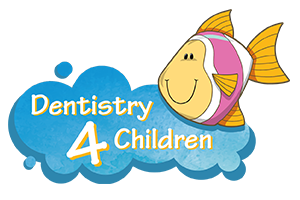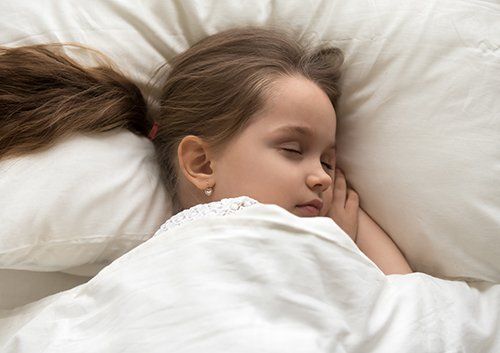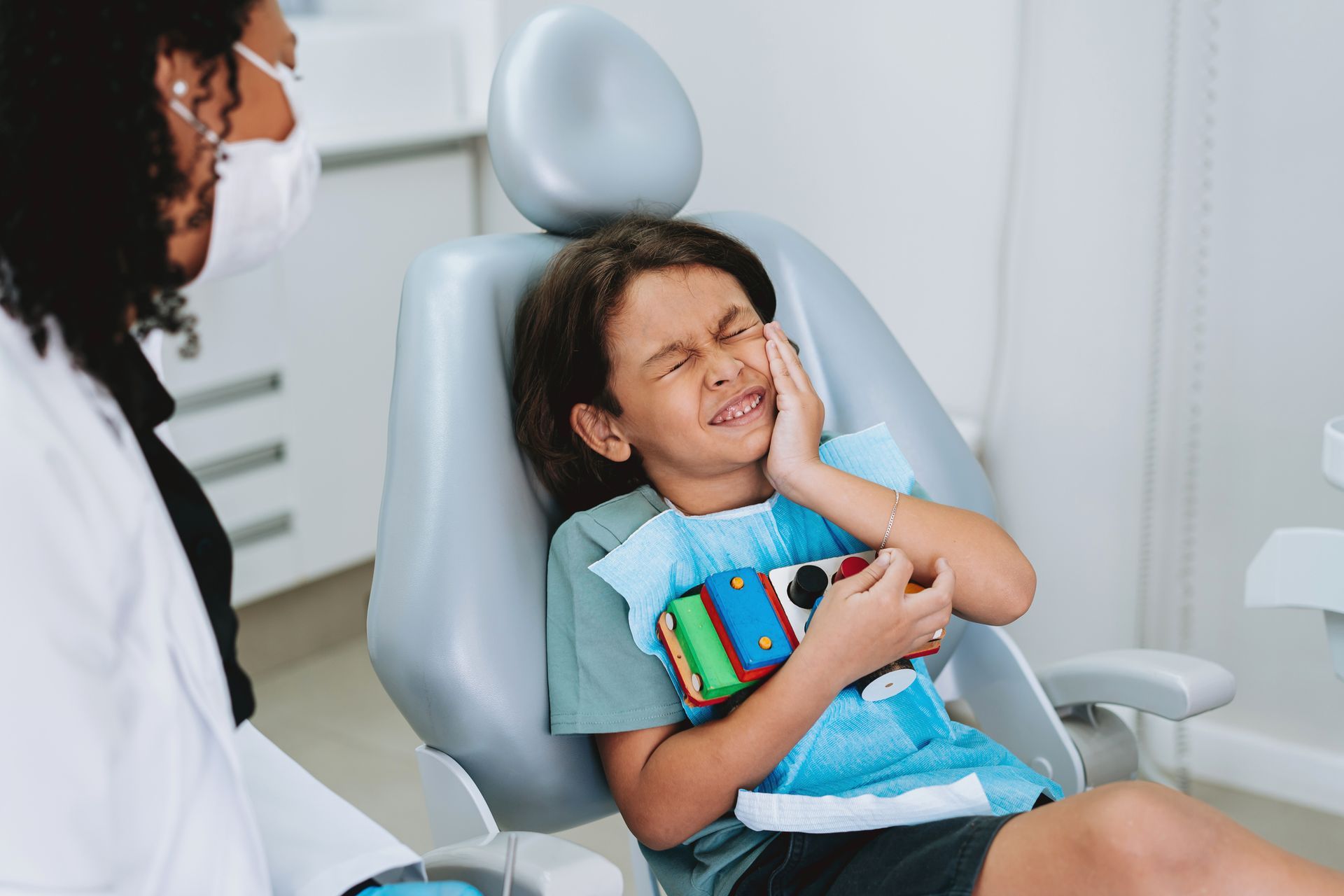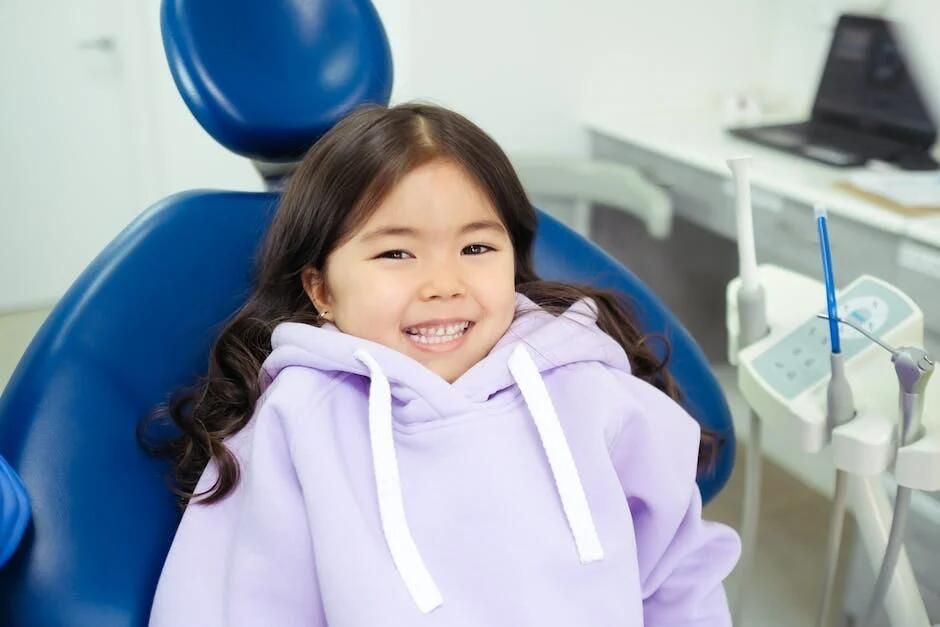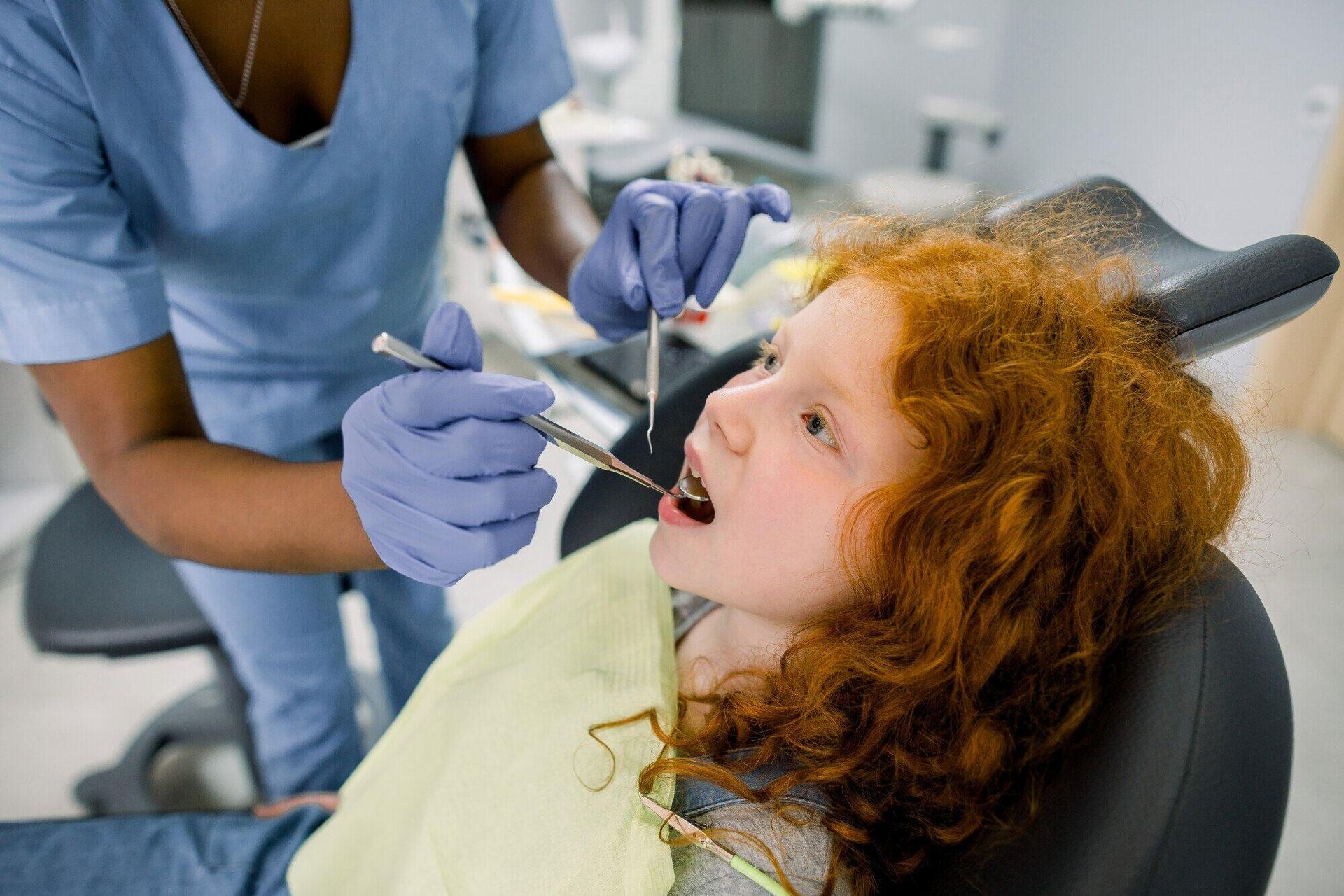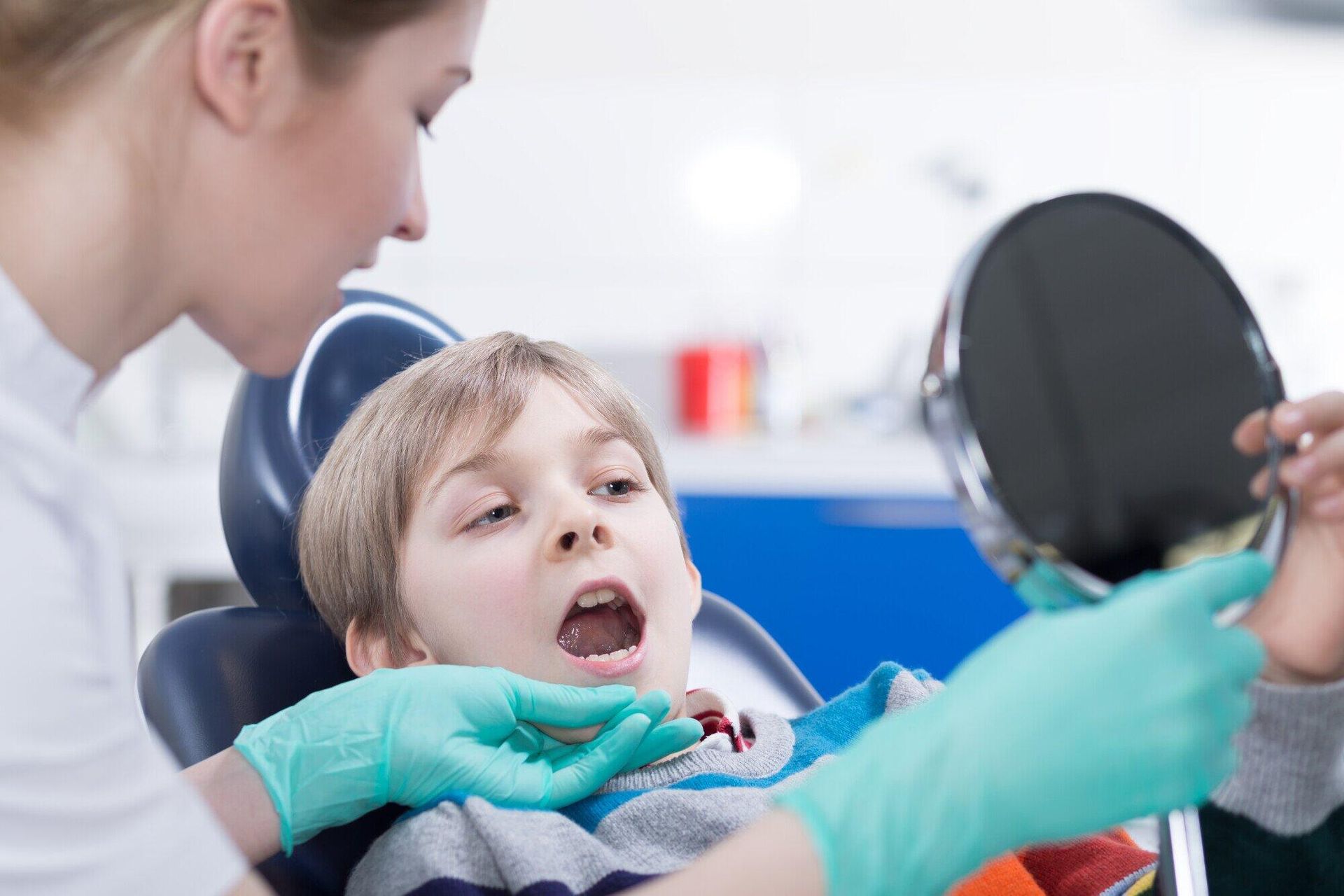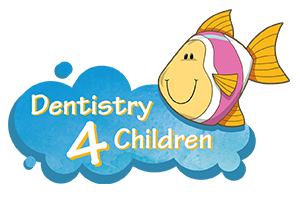Can a Night Guard Mean Sweet Dreams for Your Child?
Sometimes the reason for a poor night’s sleep is obvious. Maybe your child watched a scary movie. Or loaded up on sugar before bed. Or can’t get to sleep after a night of computer screens or video games. Not much we can do about these problems.
Sometimes, though, the cause of your child’s sleep difficulties is dental in origin, and that is something Drs. Lisa Richardson can help with.
Teeth grinding, or bruxism, is a very common childhood dental problem. While children with this condition sleep, their jaws clench and their teeth grind against each other throughout the night. When to suspect children might suffer from bruxism? When they experience:
- Frequent headaches or facial pain
- Waking with a sore jaw, or popping or clicking jaw sounds through the day
- Teeth which are chipped, cracked, flattened, worn down, or sensitive
- Waking up tired, because grinding affects the quality of sleep
- Siblings who complain about nocturnal grinding noises, which affect the quality of their
Pain and fatigue are unpleasant enough, but there are additional serious consequences for those who suffer from bruxism. Our jaws are extremely powerful, and clenching and grinding can put hundreds of pounds on pressure on teeth and jaws over a few hours of sleep.
These forces can lead to damaged teeth and dental work, and problems with the temporomandibular joint, or TMJ, the complex hinge that allows our jaws to move up and down, back and forth, and side to side.
Clearly, prevention is clearly a much better option for a healthy smile. And one of the simplest and most effective treatments for preventing the damage caused by bruxism is a night guard.
Night guards fit over the affected teeth to prevent them from touching directly, saving tooth and enamel from injury and wear. Not only do night guards prevent contact, they spread the biting forces of the jaw over the surface of the guard to greatly reduce their impact. And because they also stop the jaw muscles from clenching tightly, there’s no excess stress placed on the temporomandibular joint.
For all these reasons, a night guard is pretty much a slam dunk for adults who grind their teeth. But for children, it’s not necessarily an automatic decision. Why?
- If tooth grinding is mild and appears to be limited to baby teeth, children often outgrow the condition. Your dentist can let you know if you need to do more than monitor the situation.
- Sometimes it seems like your child’s smile changes from day to day. Between losing baby teeth and erupting adult teeth, this beautiful smile is a work in progress. A fitted night guard might not be a perfect fit while your child’s teeth are still coming in and shifting position.
- Finally, jaw and facial pain can also be caused by problems with your child’s bite or misaligned teeth, and that might mean that an orthodontic consultation is in order.
But if you suspect your child is suffering the effects of night time grinding and clenching, give our Pearland, TX office a call. A thorough examination will provide you with the best diagnosis and solutions for helping your child retain a healthy smile and regain a healthy night’s sleep.
And if a night guard is recommended, a dental professional is the best person to see for the most effective night guard.
While over-the-counter products are available, a custom night guard is designed to fit your child’s individual teeth and mouth perfectly. Impressions or 3D scans are taken in the office, and a guard is fabricated with the precise shape, strength, and thickness needed to protect young teeth. And, as a bonus, custom night guards offer the most comfortable fit for the most comfortable night’s sleep.
Scary movies, a late night sugar rush, mesmerizing video screens—not much we can do about those! But if your child is suffering lost sleep and painful mornings because of tooth grinding, give us a call. A night guard just might be the key to sweet dreams.
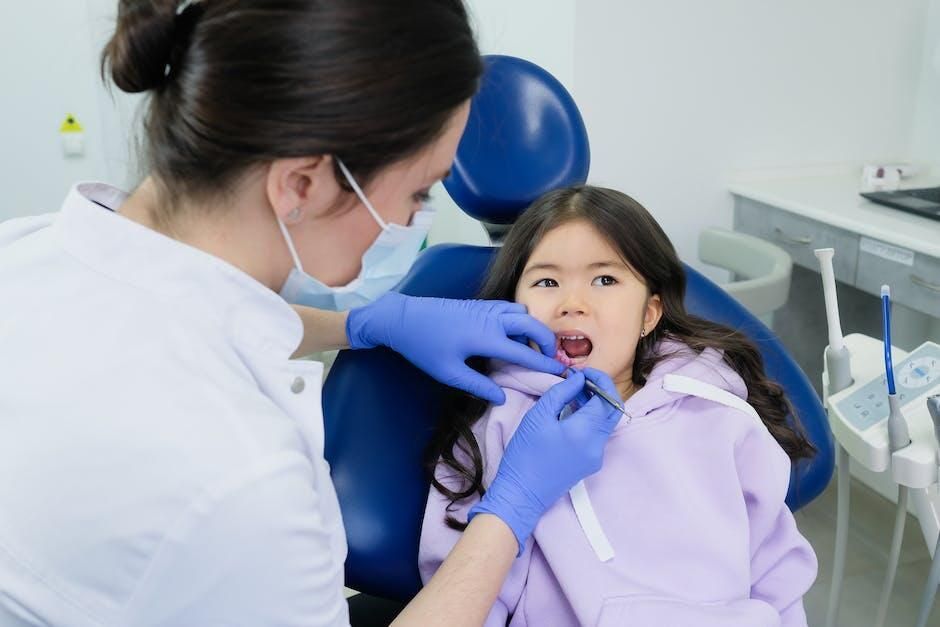
More than half of children develop at least one cavity in their baby teeth by the age of eight , according to the CDC. Tooth decay ranks among the most prevalent long-term health issues affecting children in the United States. As a parent, you do everything to protect your child's health. But even with brushing and regular checkups, tooth decay can sneak in , especially in the deep grooves of molars. That is where dental sealants come in. Dental sealants are an effective, preventive dental treatment designed to protect your child's teeth from cavities. Sealants could be the answer if you are a busy parent in Friendswood, TX, seeking proven solutions to support your child's dental health. Let us learn how this simple treatment can give your child a healthier smile and fewer dental visits down the road. What Are Dental Sealants? Dental sealants are thin, protective coatings made from safe, BPA-free dental resin. Pediatric dentists apply them to the chewing areas of the very back teeth, typically the pre-molars and molars, because these teeth are the most vulnerable to developing cavities. These back teeth are filled with deep pits and narrow grooves that trap food and plaque. Even with proper brushing, these areas can be challenging to clean and reach. Sealants operate by filling in those grooves and creating a smooth, protective layer over the tooth. This barrier blocks bacteria, food debris, and acids from settling into the enamel and starting the decay process. How Dental Sealants Work Sealants act as a powerful shield over the tooth's surface. Once applied, they seal the grooves where food particles and bacteria most often gather, reducing the risk of cavities. This protective function is especially crucial during a child's cavity-prone years . Below are the key steps in how dental sealants work to safeguard your child's smile: Sealants bond to the grooves and pits of molars They dry into a hard, plastic-like coating The surface becomes smoother, making it easier to clean Sealants are beneficial during the cavity-prone years of ages 6 to 14. The Sealant Application Process The sealant application process is quick, painless, and non-invasive. It is designed to be comfortable for children and does not require anesthesia. Most kids find the procedure easy and even enjoyable, especially in a friendly pediatric setting. Here is how it works: Step 1: Cleaning the Tooth The tooth is cleaned to remove plaque, food particles, and any surface debris. This ensures the sealant adheres well without being blocked by unwanted residue. Step 2: Preparing the Tooth Surface A gentle acidic solution, usually a type of dental etchant, is applied to the chewing surface. This slightly roughens the enamel to create a stronger bond between the sealant and the tooth. Step 3: Applying the Sealant After rinsing and drying the tooth again, the dentist carefully paints the liquid sealant into the deep grooves and fissures. The sealant flows into these crevices, creating a thin but durable protective coating. Step 4: Hardening the Sealant A curing light is used to harden the sealant material quickly. In seconds, the liquid transforms into a solid barrier that shields the tooth from bacteria and decay. The entire process takes only a few minutes per tooth. There is no drilling, no needles, and absolutely no discomfort involved during the sealant procedure. Your child can return to normal activities right after the visit. Benefits of Dental Sealants for Kids Applying sealants during childhood can provide years of protection. They serve as a proactive approach to dental care, minimizing the risk of cavities before they develop. In addition to preserving your child's natural teeth, sealants help reduce future dental treatment needs. Some of the top benefits include: Effective cavity prevention in hard-to-reach molars Cost-effective compared to fillings or restorative treatments Quick and painless application Long-lasting protection for up to 9 years with proper care Safe and tested for pediatric use Preventing Tooth Decay Early Tooth decay in children can lead to pain, infection, difficulty eating, and missed school days. Left untreated, it can impact your child's: Speech development Nutrition Self-esteem Dental issues at an early age often carry into adulthood if not addressed. Sealants play a critical role in preventing tooth decay before it starts. Children with sealants have fewer cavities and are less likely to require fillings or crowns later in life. This early protection preserves the structure of their natural teeth and helps avoid more invasive procedures down the road. It also means fewer dental visits for treatment and less anxiety associated with dental care. Combined with regular cleanings and a good brushing routine, dental sealants help your child maintain a healthy, confident smile. Are Sealants Safe for Children? The materials used for sealants have been tested and are approved for use in dental care for kids. They are BPA-free or contain low levels that are not considered harmful. Dentists recommend sealants for: Children with deep grooves in their molars Kids who have already had cavities Children with special needs who may have difficulty brushing Best Sealants for Teeth: What to Ask Your Dentist Parents often ask about the best sealants for teeth. The right choice depends on your child's needs and the dentist's recommendation. Some sealants are clear, allowing dentists to monitor the tooth underneath. Others are white or slightly tinted for visibility. Discuss with your pediatric dentist: Material safety and durability Whether sealants are fluoride-releasing Expected lifespan of the sealants Children’s Dental Health: Sealants and More While sealants are powerful, they work best when combined with a complete at-home and professional oral care routine. Good dental habits reinforce the protection sealants provide and help ensure long-term results. They work in harmony to keep your child's mouth clean and healthy. While sealants are powerful, they work best when combined with other good habits, such as: Brushing with fluoride toothpaste twice a day Flossing daily Limiting sugary drinks and snacks Routine dental cleanings and exams At Dentistry 4 Children, we take a preventive approach to children's dental health, providing personalized guidance and education for parents. Why Pediatric Dentists Recommend Sealants Pediatric dentists are specially trained to work with children, including those with dental anxiety or special healthcare needs. Their training includes: Advanced behavioral techniques Communication strategies A deep understanding of childhood development They use a combination of: Friendly explanations Distraction methods A comforting tone This ensures kids feel at ease during appointments. They understand how to make procedures like sealants stress-free. Many parents in Friendswood , Pearland, and League City choose Dentistry 4 Children because of our warm, child-centered approach. We emphasize prevention, comfort, and education. We also provide multiple sedation options when needed, helping children who might otherwise struggle with dental care. When Should My Child Get Sealants? Timing is critical when it comes to sealant effectiveness. Applying them at the right stage in your child's dental development maximizes their protective benefits. Most dentists recommend applying sealants as soon as permanent molars come in: First molars around age 6 Second molars around age 12 The earlier the sealant is applied, the more protection it offers. Children at high risk for cavities may also benefit from sealants on their baby teeth. How Long Do Dental Sealants Last? Dental sealants can last up to 9 years, but their effectiveness decreases over time. Regular checkups allow your dentist to monitor sealants and reapply them as needed. Children who grind their teeth or chew hard foods may require more frequent evaluations. Can My Child Eat After Getting Sealants? There are no food restrictions after the procedure. Your child can eat and drink right away without worrying about damaging the sealants. Just encourage them to maintain good brushing habits to keep the sealants and surrounding teeth clean. What if My Child Already Has Cavities? A dentist can treat decay and still apply sealants to other healthy teeth. Placing sealants on teeth that have not yet developed cavities can prevent the spread of decay and protect vulnerable surfaces. Your child's dentist will evaluate each tooth and create a personalized plan to ensure long-term protection and optimal oral health . Sealants Are Worth the Investment Compared to the cost of fillings or crowns, sealants are an affordable option and are often covered by many insurance plans. Sealants save money and protect your child's oral health in the long term. If you are a working parent, adding sealants during a regular cleaning visit makes it easy to fit into your schedule. Dental Care for Kids in Friendswood, TX Parents in Friendswood, Pearland, and League City trust Dentistry 4 Children to provide expert dental care for kids. Our team is trained in calming techniques and dental care for children with anxiety or sensory challenges. Every child deserves a gentle introduction to dental visits. We are committed to making each visit as relaxed and positive as possible. Protect Your Child’s Smile With Dental Sealants Dental sealants play a crucial role in maintaining your child's teeth's strength and health. When paired with good hygiene and professional care, they reduce the risk of cavities. At Dentistry 4 Children in Friendswood, Dr. Lisa Richardson and her caring team have been serving local families for over 20 years. Driven by a passion to help all children, including those with special needs, Dr. Richardson believes that no child should fear the dentist. Schedule your child's appointment today and ask about dental sealants during your visit.
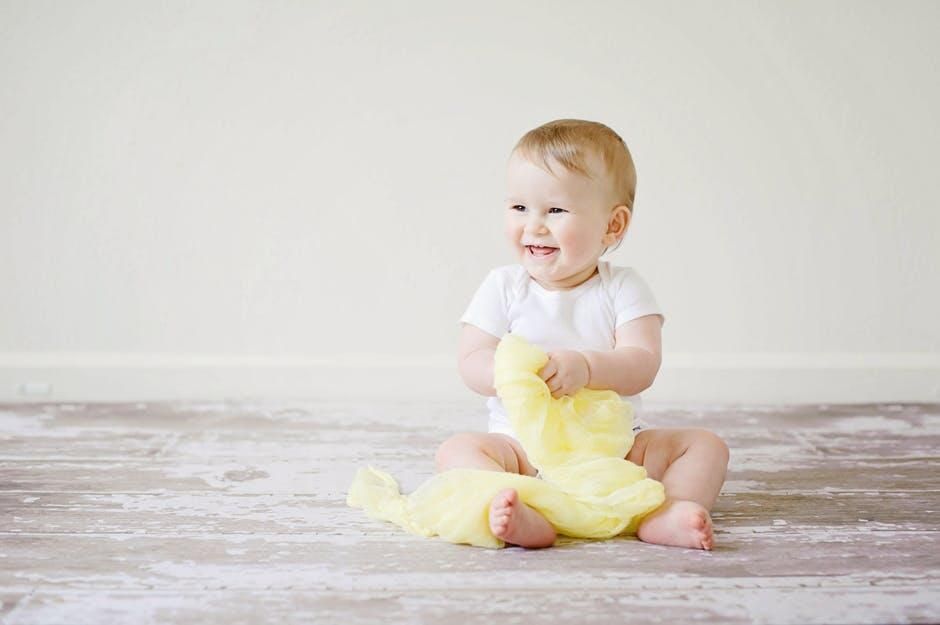
According to the CDC, Half of U.S. children aged six to nine have had cavities in their baby or permanent teeth. That's a staggering number for something that's completely preventable with early care. Your baby's first dental visit isn't just a cute milestone, it's your child's starting line for strong, lifelong oral health. Many parents delay the first appointment, thinking it isn't necessary until school age. But by then, early signs of decay may have already taken hold. When you know what to expect, it's easier to walk in with confidence. From the moment you meet your pediatric dentist, you'll get clear answers, gentle care, and useful tips. The visit only takes a short time but lays a lasting foundation. Read on to see how simple it is to give your child a strong start. Setting the Right Expectations Your child's first dentist appointment can feel unfamiliar, but there's nothing to fear. Pediatric dentists know how to keep little ones calm and curious. The goal is comfort, not treatment. Think of this visit as a friendly introduction. Expect a warm welcome when you arrive. You'll check in, fill out a few forms, and then meet the dental team. They'll talk to your child in a way that builds trust fast. Some kids may sit on your lap while the dentist looks inside their mouth. A quick look at the gums and first teeth helps spot early signs of decay. You'll also talk about cleaning routines and healthy snacks. Common questions during the first visit include: When to brush When to floss What toothpaste to use Thumb sucking habits Tooth-friendly snacks Your child's comfort matters more than a perfect exam. If things don't go smoothly, that's okay; building comfort takes time. By setting expectations early, you help your child feel safe and involved. That trust makes future visits smoother and stress-free. Why Baby Teeth Matter Baby teeth fall out, but their role is serious. These tiny teeth hold space for adult ones and help your child eat, smile, and speak clearly. Damage to baby teeth can lead to infection or pain. That's why early visits focus on prevention . Your pediatric dentist may clean the teeth gently and check for any signs of trouble. First teeth care isn't just brushing, it's full-mouth health. You'll get tips on how to clean the gums, wipe the tongue, and handle teething. Important topics include: Gum care routines Teething relief Fluoride use Bottle or pacifier habits Keeping baby teeth healthy protects future oral development. Delaying care might lead to cavities, speech problems, or bite issues. Don't wait until something hurts. With early visits, your child stays ahead of problems while learning that the dentist is a friend. What the Pediatric Dentist Looks For During the exam, your pediatric dentist checks for more than cavities. The goal is to understand how your child's mouth is developing and what support it needs. The visit often starts with a gentle count of the teeth. From there, the dentist examines gum color, bite alignment, and jaw growth. These signs offer clues to your child's overall health. Key areas the dentist may assess: Tooth spacing Bite position Gum health Lip and tongue movement Even small signs can reveal bigger issues later. The dentist may ask about thumb sucking, breathing habits, or how your child swallows. If needed, you'll leave with follow-up steps or referrals to specialists. But often, it's a simple check-in and lots of encouragement. Your child's oral health is more than a smile. It's how they speak, chew, and thrive. The sooner your dentist spots concerns, the easier they are to guide. How You Can Prepare A smooth visit starts before you walk through the door. Kids follow your cues. If you stay calm and upbeat, your child is more likely to do the same. Talk about the visit in a fun, light way. Say the dentist counts teeth or checks smiles. Avoid saying "it won't hurt"; this plants the idea that something might. Tips to make it easier: Read dental books Watch kid-friendly videos Role-play a visit Bring comfort items Schedule when rested Planning ahead helps your child walk in feeling in control. Keep meals light before the visit and brush at home. Try not to rush or show stress. You're not expected to be perfect. Your support means more than any prep. If your child cries or resists, let the dental team guide things. They've seen it all. Building Habits That Last After the first visit, your dentist will discuss the next steps with you. Your child's oral health grows from everyday routines, not just check-ups. You'll get advice on brushing techniques , when to floss, and how diet plays a role. Avoiding sugary drinks and snacks is one of the biggest keys. Good daily habits include: Twice-a-day brushing Tiny smear of toothpaste Flossing once the teeth touch Water instead of juice Strong routines now build confidence later. Children who learn to brush early are more likely to care for their teeth as they grow. Expect to return for check-ups every six months . These visits catch small changes before they turn into big ones. They also show your child that care is constant, not scary. Start small and keep it simple. Each step adds up. When those steps become second nature, your child's smile grows stronger with every day. Planning Your Baby's First Dental Visit Your baby's first dental visit is the first step in ensuring a lifetime of healthy smiles. From here, you'll focus on developing strong oral hygiene habits and keeping a routine of regular check-ups. Ready to give your child a healthy start? With a focus on gentle care and a welcoming environment, we make your child's first dental visit an experience they'll look forward to. Let us help you create a bright future for your child's smile. Our pediatric specialists are here to ensure your child's oral health is in the best hands, making every visit both fun and effective. Contact our expert team at DDS4Children in Pearland today!
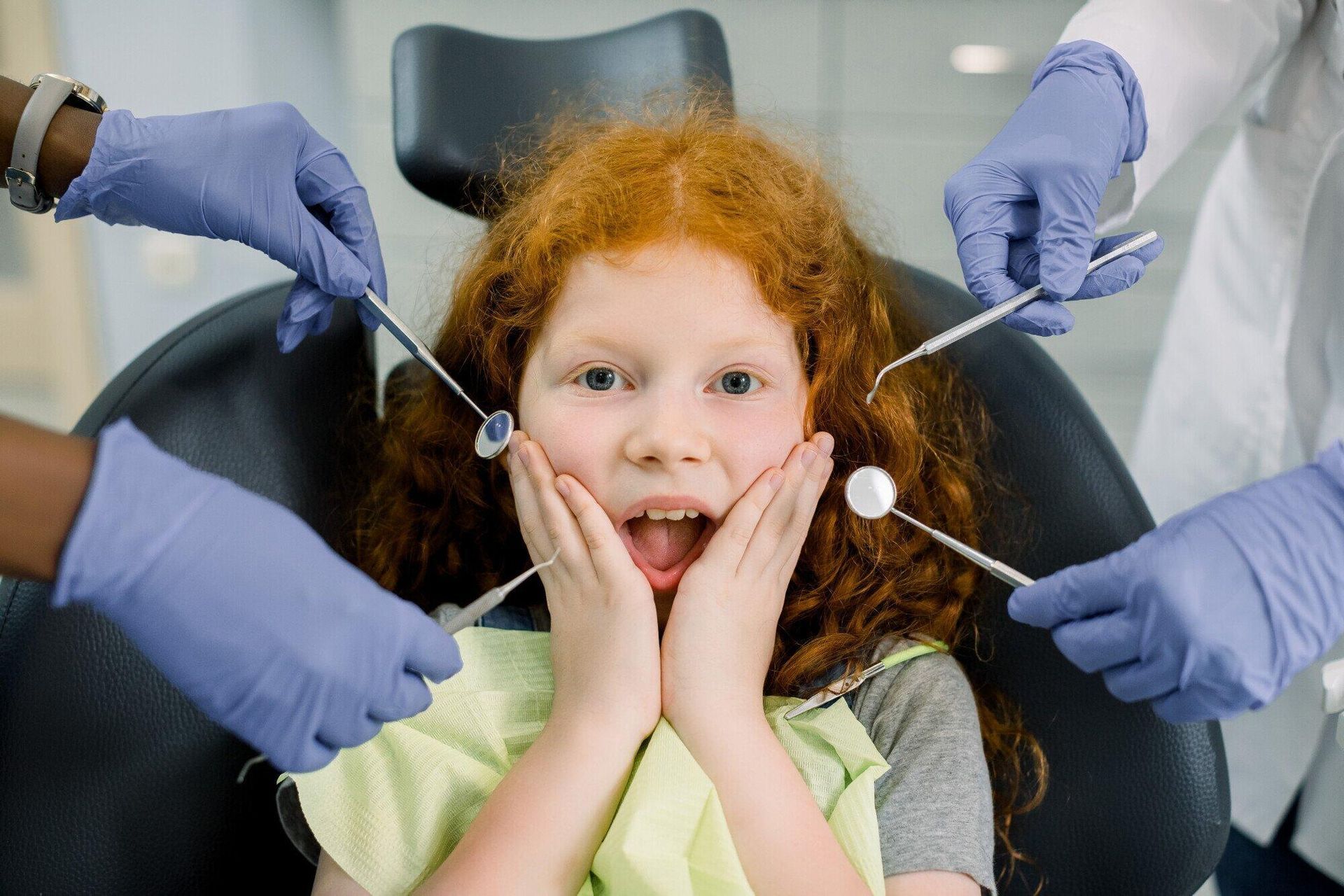
According to Child Stats, it is estimated that three million kids go to the emergency room for injuries yearly. Dental injuries, in particular, are common in children, especially those who are active in sports, playground activities, or simply exploring their surroundings. Knowing what to do and how to respond to a dental emergency can be hectic if you do not know what to do. But if you act fast and have a plan, you can prevent complications, minimize pain, and even save a tooth. Understanding first aid for dental injuries can help parents and your local family dentist provide immediate care before seeking professional treatment at a trusted pediatric dentist in Pearland . Common Types of Dental Injuries in Kids Children can experience various dental injuries, ranging from minor chips to severe trauma that requires emergency dental care. One of the most frequent injuries is a chipped or broken tooth. This is often caused by falls but can also be due to bike accidents or biting into hard objects. While minor chips may not cause immediate pain, more extensive fractures can expose nerves and lead to significant discomfort. Another serious dental injury is a knocked-out tooth, also known as an avulsed tooth. When a permanent tooth is completely dislodged from the mouth, immediate action is crucial to improve the chances of saving it. In contrast, if a baby tooth is knocked out prematurely, attempting to reinsert it can cause damage to the developing permanent tooth underneath. A loose or displaced tooth is another common issue that can occur due to blunt force trauma. While some cases resolve independently, others require professional dental evaluation to ensure the surrounding structures remain intact. If your child experiences a dental emergency, learning about common pediatric dental emergencies can help you take the proper steps. Tooth intrusion occurs when a tooth is pushed further into the gums due to an impact. This type of injury is more common in younger children whose jawbones are still developing. Tooth intrusion can lead to complications, such as damage to the underlying permanent teeth, making it essential to visit an emergency pediatric dentist in Friendswood for proper assessment. Lastly, injuries to the lips, tongue, or gums often accompany dental trauma. These soft tissue injuries can cause significant bleeding and pain, increasing the risk of infection if not properly treated. Immediate First Aid Steps for Dental Injuries Providing immediate comprehensive oral care for dental injuries can significantly improve the outcome. For a chipped or broken tooth, it is essential to rinse the child's mouth with warm water to remove debris. Applying a cold compress to the affected area can help reduce swelling and alleviate pain. If possible, collect any broken fragments and bring them to a dentist. If a permanent tooth is knocked out, locate it and handle it only by the crown, avoiding contact with the root. If the tooth is dirty, rinse it gently with water, but do not scrub or remove any attached tissue. If possible, reinsert the tooth into the socket and have the child bite on a clean cloth to hold it in place. If reinsertion is not feasible, store the tooth in milk or the child's saliva and seek emergency dental care immediately. For a step-by-step guide on managing a knocked-out tooth, check out this helpful resource on handling pediatric dental emergencies . Stabilizing a loose or displaced tooth by having the child bite down gently on a piece of gauze is essential. Avoid repositioning the tooth forcefully, as this could cause additional damage. A child-friendly dentist should assess the injury as soon as possible. Tooth intrusion should be treated with caution. Attempting to reposition the tooth at home is not recommended. Instead, apply a cold compress if the tooth is swelling and schedule an emergency dental visit. Seeking care from a pediatric emergency dentist in Friendswood can ensure the injury is managed appropriately. For soft tissue injuries, such as cuts to the lips, tongue, or gums, applying gentle pressure with a clean cloth or gauze can help control bleeding. A cold compress can reduce swelling, and rinsing with salt water may help prevent infection. When to Seek Professional Dental Care While minor dental injuries may not require immediate attention from a family dentistry practice, certain signs indicate the need for urgent dental care. Severe pain, swelling, excessive bleeding, or a knocked-out permanent tooth warrant an emergency visit to a dentist. Additionally, any signs of infection, such as: Pus Fever Red streaks near the injury site These should not be ignored. Understanding when to seek professional care can help prevent long-term complications. Parents can find more information on common pediatric dental emergencies . Prevention Tips to Reduce Dental Injuries While accidents are sometimes unavoidable, certain precautions can help minimize the risk of dental injuries in children. Wearing a properly fitted mouthguard during sports and recreational activities provides essential protection against impacts. Childproofing the home by securing furniture edges and installing safety gates can prevent falls that lead to dental trauma. Encouraging children to avoid chewing hard objects like ice, pens, or hard candy can also reduce the likelihood of chipped or broken teeth. Teaching good dental hygiene habits , including brushing and flossing regularly, strengthens teeth and enhances their resilience against injury. Additionally, parents should be prepared for unexpected dental emergencies while traveling. Knowing where to find emergency dental care can be invaluable in an unfamiliar location. If your child experiences a dental emergency away from home, reviewing these tips for handling dental emergencies while traveling can be beneficial. Need a Local Family Dentist? Contact Dentistry 4 Children Understanding first aid for dental injuries in children can make a significant difference in preserving their oral health. By acting quickly and getting affordable dental services, parents and caregivers can reduce pain, prevent complications, and increase the chances of saving an injured tooth. Here at Dentistry 4 Children, we know how scary these accidents can be for children. That is why we do everything possible to provide a safe and supportive local family dentist environment. So contact us today to get your child the help they need.
